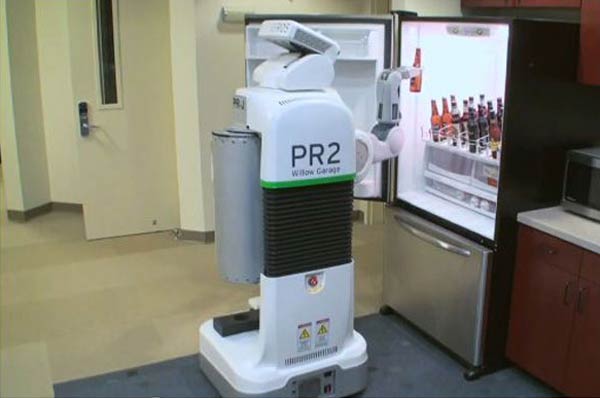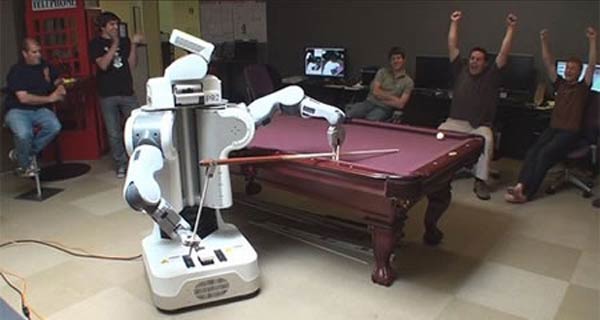Useful household robot development seems to have stalled for years after the Roomba vacuum cleaner was introduced to the market in 2002. Now researchers at Cornell University have shown a useful household robot that offers a spare pair of hands and knows where to go and what to do thanks to anticipatory algorithms.

"I think master wants an IPA"
This robotics project uses the highly dextrous two armed Willow Garage PR2 Robot developed at Stanford University. The PR2 contains a rich sensor suite to interact with its environment and is powered by two 8-core servers, each paired 24GB of RAM, housed in the robot base. Portable power comes from 16 laptop batteries.
The Cornell scientists have supplemented the PR2 robot sensors with a Microsoft Kinect and a video database of 120 or so household activities. By using its sensors and comparing your actions to its database the robot’s software can predict what you are going to do and offer a helping hand.
The activities the Cornell adapted PR2 can help you with include such things as; putting food in the fridge, brushing teeth, making breakfast cereal, and pouring you a beer – into your cup, not onto the table – see the video demonstration above.
Prof. Ashutosh Saxena, one of the computer scientists at Cornell University who programmed the robot talked about the developments; “Looking a little bit into the future helps a lot”. Indeed the prediction accuracy degrades as the robot tries to predict further into the future of events, Science Daily notes that “it made correct predictions 82 percent of the time when looking one second into the future, 71 percent correct for three seconds, and 57 percent correct for 10 seconds”.

The PR2 gets you drunk then challenges you at pool
Looking to future robot developments and machine learning Prof. Saxena says that “The future would be to figure out how the robot plans its action. Right now we are almost hard-coding the responses, but there should be a way for the robot to learn how to respond”.
The scientists will present their robotics anticipation algorithm research at the International Conference of Machine Learning, 18-21 June in Atlanta, USA and the Robotics: Science and Systems conference 24-28 June in Berlin, Germany.













